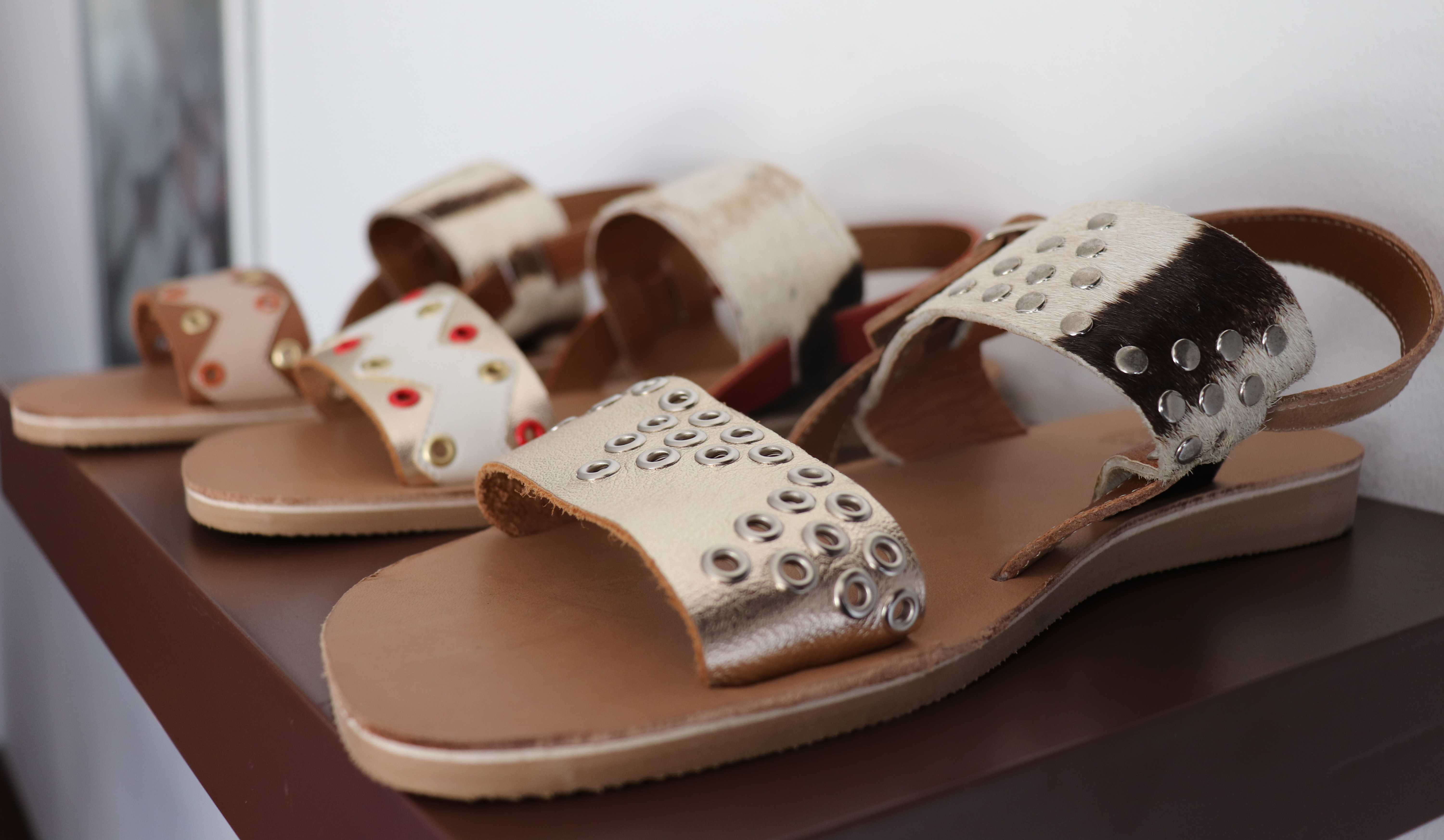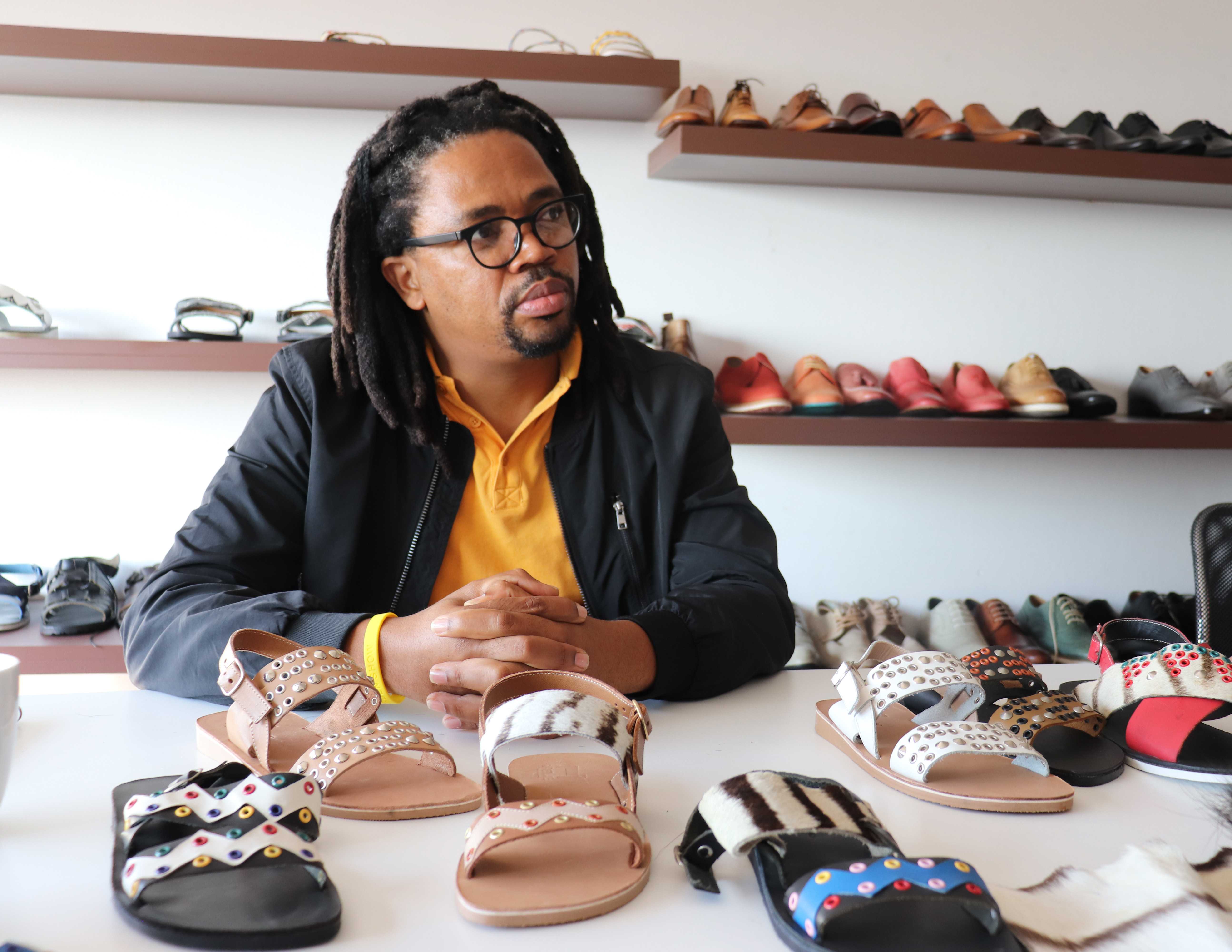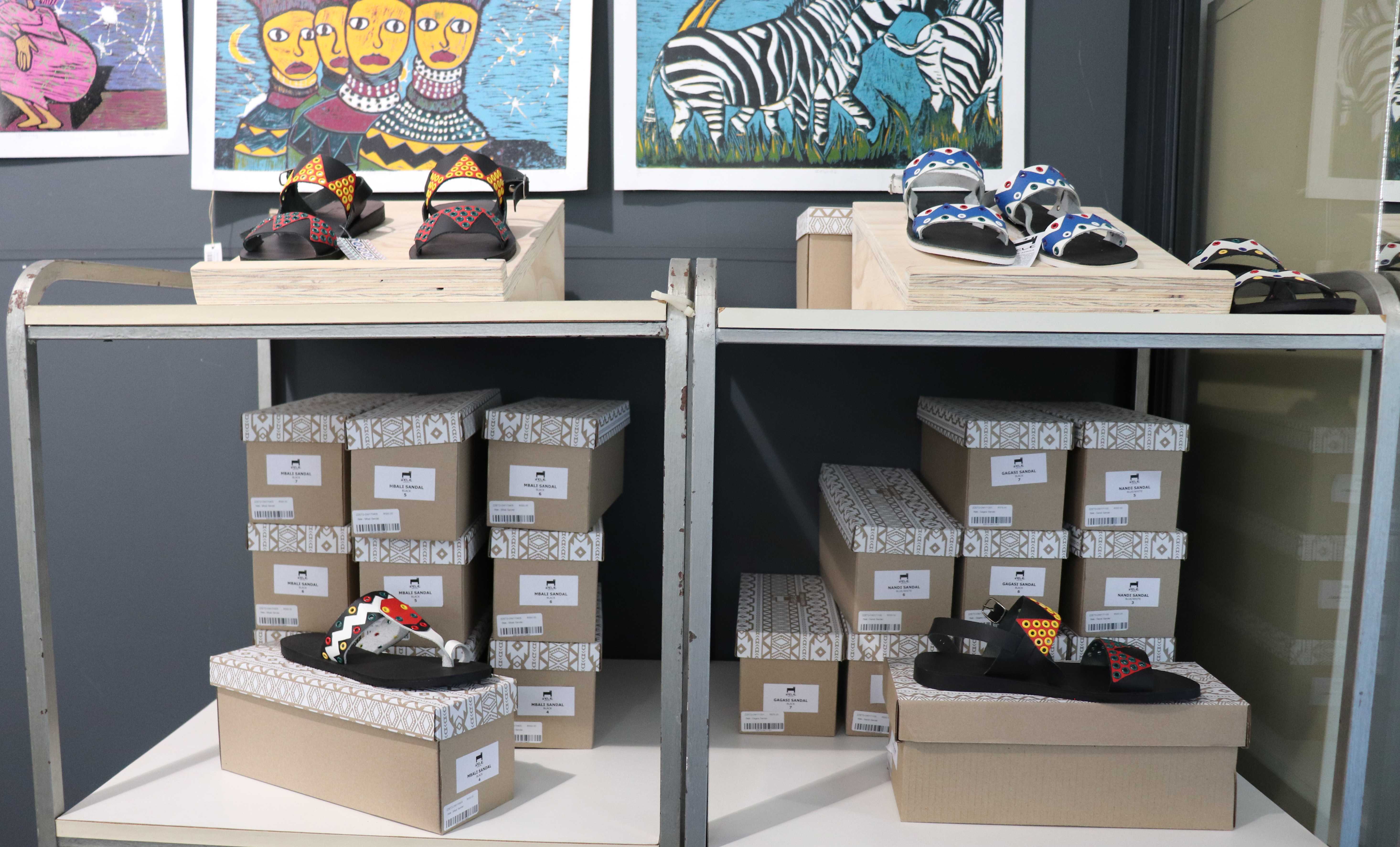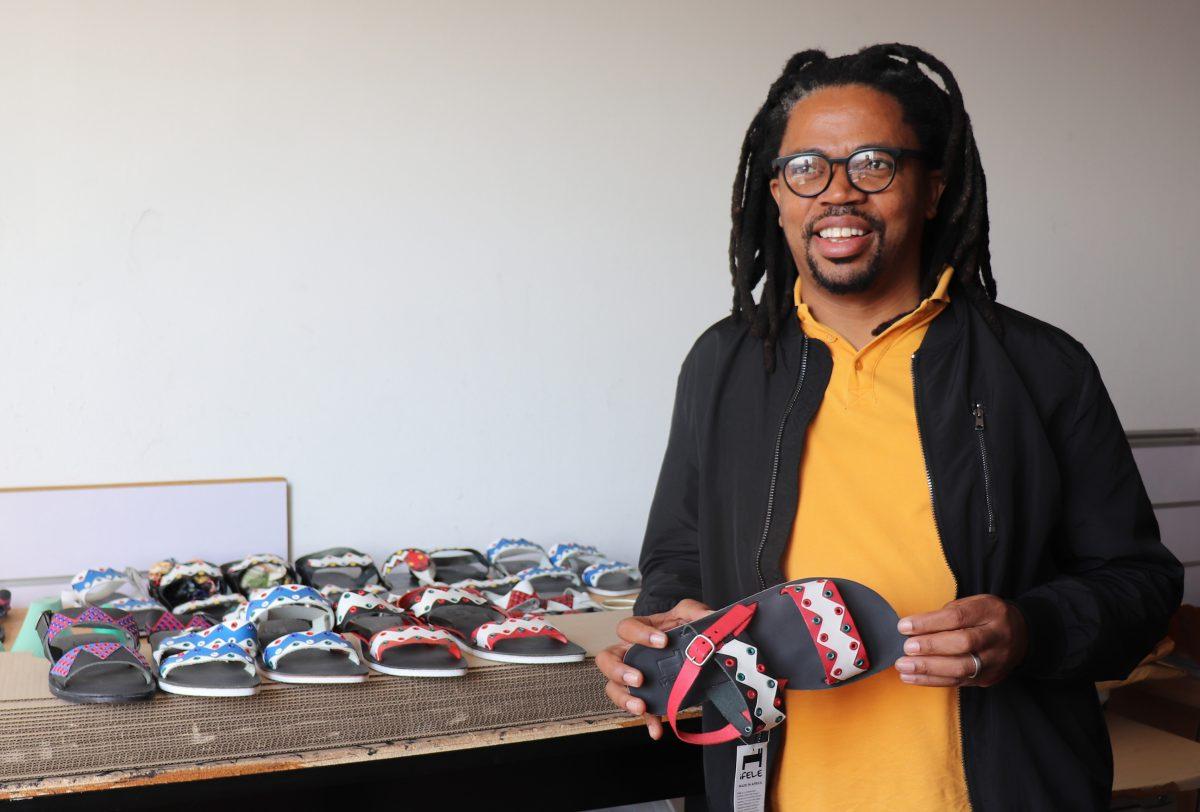Durban, South Africa — Tucked away on the second floor of a four-story shopping center in the Windermere suburb of Durban is a two-room office space lined with shoes.
This is the heart and sole of the footwear company ZETU. Reggi Xaba, founder and managing director of the company, headquarters his business in this unassuming space, filled with scraps of leather, design concepts and shelves of shoes.
Xaba established ZETU, a Zulu word meaning “ours,” in 2016 in order to create a product that helps people tap into their African identify, especially in the post-apartheid area.

“A lot of people are trying to accept themselves for who they are because a lot of it was taken away during the apartheid,” Xaba said. “This [shoe] says ‘I know who I am. I am African, and I am proudly African.’”
The studs, cuts and lining on each pair of shoes that ZETU produces are crafted by hand.
Neliswa Taliwe, ZETU operations manager, said she believes this aspect of the brand is what makes it stand out from other footwear companies.
“People like nice things and people like original and unique things, and we do our things 100% handcraft,” Taliwe said.
The handcrafting emulates South African design. Xaba said that this was a rarity in South Africa during the apartheid, which now gives the shoes an an enormous appeal.
“They follow an ethnic design,” Xaba said. “Across the board, you’ll find people wearing them.”
One of ZETU’s bestselling shoes is based on a sandal that was popular in the townships during the apartheid era. Xaba modernized the shoe, which was originally made from rubber car tires, adding zebra fur and intricate designs spread across the leather material.
“It’s something that says South Africa,” Xaba said. “It reminds people [of South Africa], even if they haven’t been.”
Xaba has over 20 years of experience in the fashion industry. At the start of his career, he worked as a buyer for Woolworths and Truworths, South African-based fashion retail companies that also carry a range of footwear lines. Before ZETU, he founded Yellow Folder Trading in 2005, a trading company specializing in South African footwear and leather goods.

One of ZETU’s brands, Ifele, which is the Xhosa word for “leather,” is a line of high quality, buffalo leather sandals with a modernized African design. Xaba acknowledged that Ifele’s target market is not a cost-conscious consumer, but rather a fashion-conscious and culturally connected consumer. The shoes range between R600 and R799 ($43 – $58) in South Africa. In markets abroad, they cost more. In Europe, they might sell for 110 euros ($124), and in the United States, they might go for about $100.
Gloria Hoff, the owner of Gallery Shop, a store in The Kwazulu Natal Society of Arts that carries Xaba’s shoes, agreed that ZETU’s Ifele sandals appeal to a niche market.
“It’s a person that’s a little offbeat, a little bit ethnic, a little bit trendy,” said Hoff.
Having attended Durban University of Technology in 1990, during the last years of apartheid rule, Xaba said he often struggled to express African craft in his design. At the time, the university was only allowed to accept 8% black students, and design education was based on Eurocentric art forms.
“When it comes to artistic expression, it’s always Eurocentric,” Xaba said. “It’s always been like that. There’s not enough focus on looking at what kind of dress is African, what kind of dress Africans need, or what the identity of African dress is in all its aspects.”
Xaba said since there is no footwear design school in the country, design education solely focuses on clothing. As a result, Xaba found himself in the shoe design industry by chance.
“When you have a chance to get a job, as a young [and black] creative, you kind of have to do what you have been given,” Xaba said. “In my case, I was given shoe design as an opportunity, but I thought I would do clothing.”

Even with the end of apartheid, Xaba found it difficult to insert himself into the fashion world as a result of discrimination.
“For us [black designers], it was difficult because while we were all free, nothing changed,” Xaba said. “The same attitudes lived on for years, including today. Companies didn’t want to work with young black people. They didn’t trust that we know what we’re doing.”
Because of his experiences, Xaba now ensures he gives others opportunities. Part of his company’s mission is to train unemployed, high school graduates in shoe production skills. ZETU has trained over 160 graduates thus far. The company conducts training at a manufacturing facility located in the Mandeni region of KwaZulu Natal. At the end of a six-month training process, workers master the art of handcrafting shoes.
“We are all trying to end poverty,” Xaba said. “We just hope that [the training] changes lives. That’s why we do it.”
Twenty-five workers are employed at ZETU’s factory in Richard’s Bay, which produces about 20 pairs of Ifele sandals and 100 pairs of children’s sandals per day. ZETU sells between 50,000 and 60,000 pairs of shoes per year, but Xaba said that is not enough to stay afloat and be relevant in the local economy.
“We are trying to sell more and more,” Xaba said. “That [amount sold] will not employ 25 workers every single day. So if we start selling [more] an interval, we can keep the 25 workers every single day.”
With ZETU exemplifying the phrase “our time,” Xaba aims to not only popularize African design but also to grow the local manufacturing sector, as South Africa depends heavily on imports when it comes to footwear. According to the South African Footwear and Leather Industry Association (SAFLIA), the local market demand for footwear in the country was 248 million pairs in 2018. With that, 73% of all footwear items is imported, making a little less than 67 million pairs being produced locally.
“There’s a gap that South African manufacturers can fill,” Xaba said, “[South Africa] should be participating as a third world country. We should actually be exporting more, and we are not doing that. So that is what [ZETU] is trying to do here, to make a change.”
Now, in a post-apartheid country, Xaba said he has witnessed the transformation of fashion and design in the country.
“You see a lot of African designers coming into the floor coming up with interesting things, doing things differently, prints, and this and that,” Xaba said. “I think what we are doing with this brand [ZETU] is also part of that wave of reimagining African sensibility or way of dress.”
Sarah Harwick ’21 contributed to this story.

















































